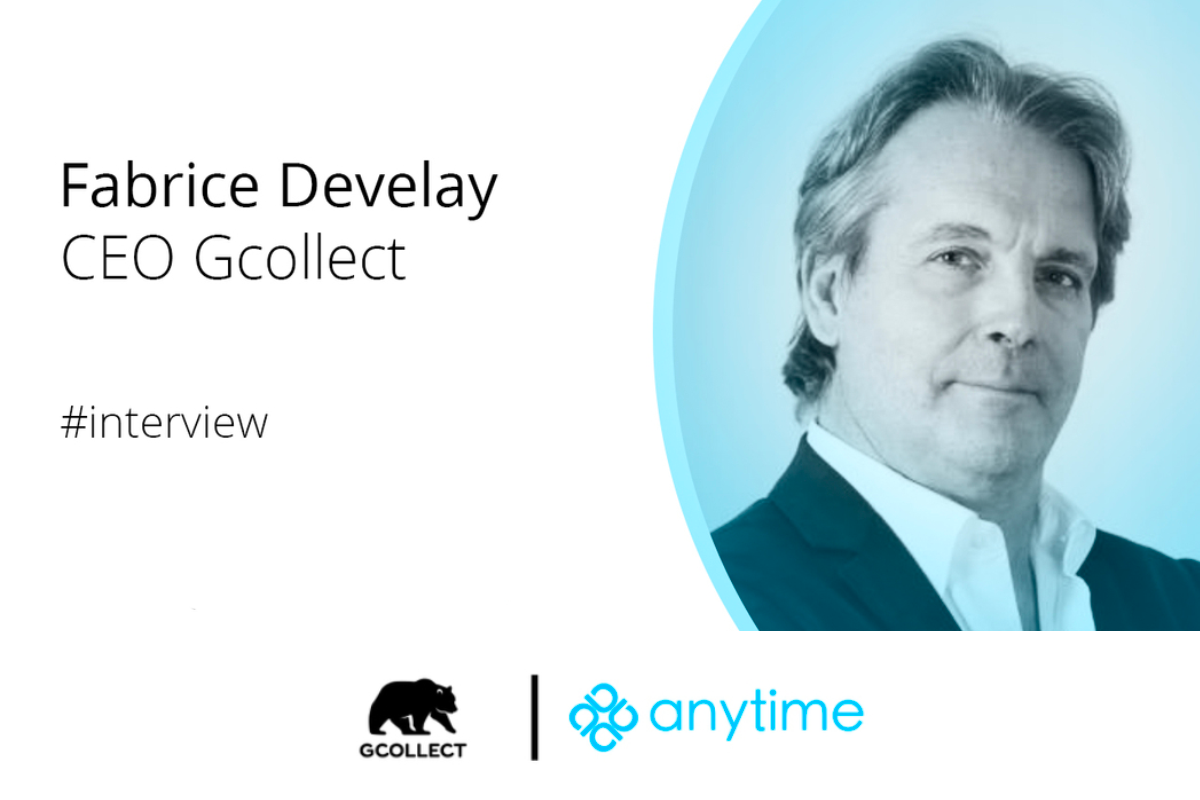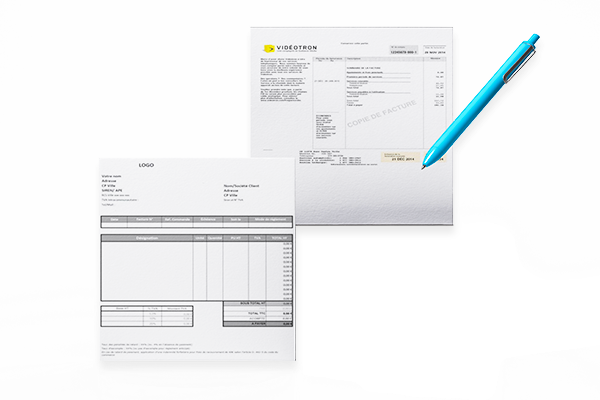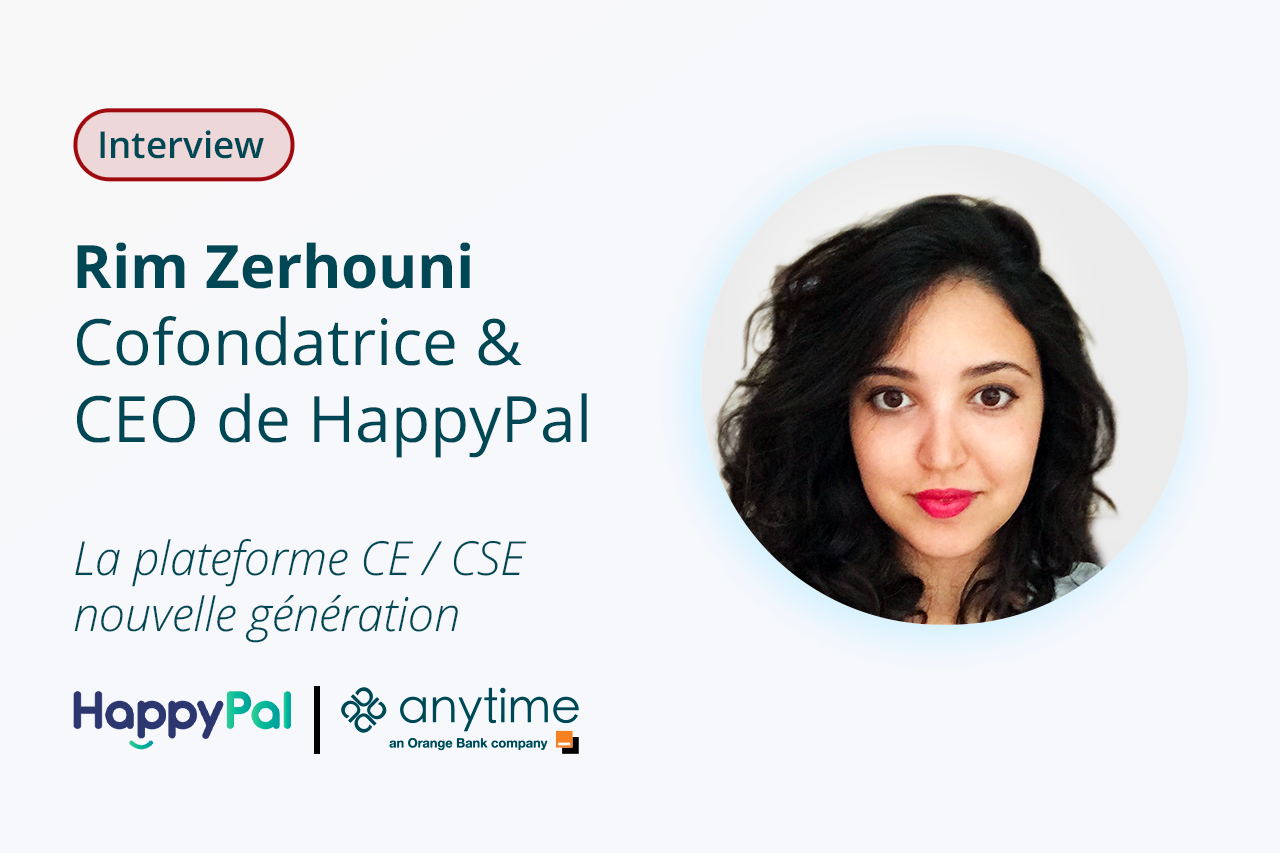
Every year, 2% of French GDP- the equivalent of 56 billion unpaid invoices- is written off by companies. Only 2 billion of these receivables are actually recovered. Unpaid invoices are therefore a major problem for all types of company.
At Anytime, we're committed to making life easier for entrepreneurs, and this is also one of the challenges facing Fabrice Develay, CEO of GCollect, which offers a simple, cost-effective solution for collecting your receivables.
"From 2015 to 2017, it was all about thinking about the best way to make debt collection accessible to everyone. After 30 years' experience as a bailiff, I was very often confronted with people who questioned the opacity of rates, the value of long and costly legal proceedings, and the accessibility of collections in general."
GCollect was born, a platform that brings together contractors and debt collectors, finally connecting these two worlds. Contractors submit their invoices to the platform, which uses algorithms to connect them with the best collection agency available, at a pre-agreed rate. This makes the whole process completely transparent and accessible to all.
"There are two types of invoice to consider. The invoice we'll call the large invoice, over €50k to €75k. When it's on hold, it's because of a real problem. The situation is very often resolved through mediation or litigation.
We also find what we will call the small invoicesof less than €5k. These are often unaddressed through negligence, forgotten in a corner, not given priority, not destined for the right department, etc. There are many reasons for this, and that's where the bulk of our work lies. There are many reasons for this, and that's where the bulk of our work lies "*.
In order to deal with these different types of unpaid invoices as effectively as possible, GCollect offers several collection options, both circular and flexible.
"The circular covering is quite simple. You submit an invoice, and if the first service provider to whom it is assigned is unable to collect it, it is made available to another service provider. This system allows you to multiply/increase the probability of collection.
The modular collection, as its name suggests, allows you to modulate the amount due in monthly instalments. You choose the amount, and the debtor validates it, enabling you to reconcile the two parties and work hand in hand on a collection plan".
This declared determination means that the company in arrears is not overwhelmed, and that conciliation between the two parties is sought to minimize the need to resort to costly and time-consuming legal action.
"I don't call him a deadbeat, I call him a defaulting customer. I don't like the negative side induced in this term, it's what leads to legal proceedings. We don't want to distress customers any further. If they find themselves in these situations, it's not by their own choice, but because it's impossible to do otherwise. In fact, the "defaulting customer" often finds himself in this situation because he has to deal with a late payment on one of his invoices.
However, there are upstream methods for limiting the risk of these unpaid bills, thanks to a well-controlled pre-contractual relationship, and the monitoring of payments and their due dates using dashboards.
"The difficulty lies in the fact that no one invoice is more likely than another to go unpaid. It all depends on the situation and the type of company. As we can see from the current situation, people are no longer in a position to wait, and even the biggest companies, which are usually more patient, are looking to be settled for all costs incurred."
GCollect is therefore a platform for reconciliation between the various players, offering a direct solution for companies awaiting payment, as well as for collection service providers, who now have a simplified channel for acquiring invoices.
Fabrice Develay wants to take this desire to connect people even further, with the Smart Recouvrement initiative, a collective of fintechs dedicated to corporate cash management.
"We created our own ecosystem because, until now, there has been no collective of fintechs to cover an entire sector. Anyone who wants to join us is welcome to do so, as long as they share our values, which are ethics, humanity, respect and, of course, tech."
This entrepreneurial vision has driven him since his early days as a bailiff, with a real appetite for problem-solving.
"We don't collect a bank bill like a consumer credit, mutual insurance or rent claim. The key is to give meaningThe most important thing is to give meaning, to understand what was offered, sold, the service, and what emotions were felt by the two parties who entered into the contract. Life in society is something that motivates me, and I like people, which is essential in debt collection, which enables me to propose solutions. I find that rewarding. I may have a slightly atypical view of the situation, but I'm the product of my upbringing and culture, which means that I like to make sense of things and think things through "*.







